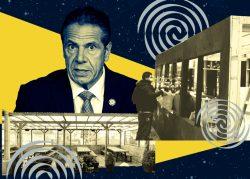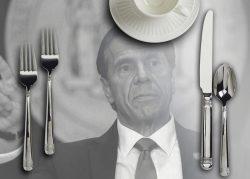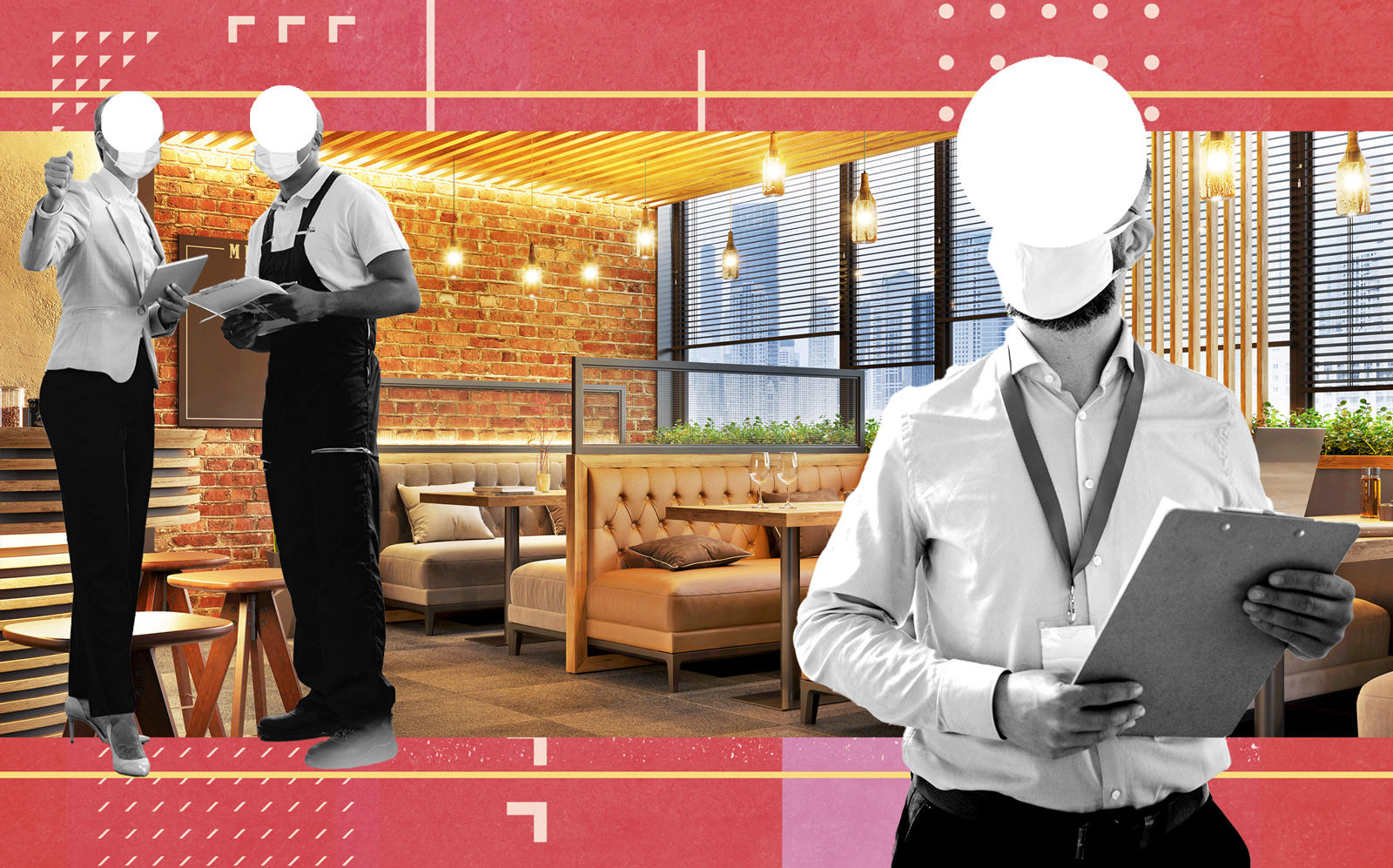On July 18 at around 4:30 p.m., Bungalow Bar in Rockaway Beach received a visit from the State Liquor Authority. Inspectors from the agency walked through the restaurant with its owners, told a guest to wear a mask when waiting for the bathroom and left. The inspectors didn’t find anything that warranted a citation.
But two days later, the Department of Consumer Affairs came to do an inspection of the premises. The day after that, the Mayor’s Special Task Force paid Bungalow Bar a visit.
Between that first visit and Aug. 25, Bungalow Bar was visited 11 times by inspectors from various city and state agencies, all conducting Covid-19 investigations. In some cases, the inspections happened daily.
The restaurant was never written up for violating coronavirus-mandated safety protocols. Still, the visits were a major source of anxiety, according to owner Terence Tubridy.
“I feel like we’re living in a world of prohibition,” Tubridy said.
When the pandemic started, the SLA, the agency in charge of issuing liquor licenses, had just 30 investigators, according to data provided to The Real Deal by New York State. Prior to the pandemic, the Department of Health and Mental Hygiene was in charge of health inspections.
But as the health crisis raged on, in an attempt to build up the number of bodies available to conduct inspections, the city and state decided to borrow personnel from a variety of government agencies, many of whom had never conducted restaurant inspections before.
On the city side, officials from 15 agencies — from the Sheriff’s Department to the Department of Environmental Protection to the Taxi and Limousine Commission — were tapped to help out. On the state side, inspectors were brought in from the Department of Agriculture, the Department of Motor Vehicles, and the Department of Tax and Finance.
Read more



Multiple visits from multiple inspectors has led to major issues, according to restaurateurs who’ve been targeted — namely a lack of coordination between agencies, and little knowledge of what to look for when inspecting bars and restaurants.
“The inspectors have become regulars with some,” said William Mack, a partner at the law firm Davidoff Hutcher and Citron, which works with restaurant owners. However, “restaurateurs that are in the same neighborhood or on the same block as some others, they’re not inspected at all or a dramatically different number of times.”
Depending on the violation it receives, a restaurant may have its liquor license suspended, be forced to pay a fine or be temporarily shut down, all based on inspections by investigators who may never have worked with a restaurant prior to the pandemic.
Investigators all have previous experience conducting these types of visits within their respective agencies and receive additional training, according to the SLA. Most inspections are the result of patrols, when investigators walk through designated areas of the city, which can result in multiple visits, the agency said.
“While we understand the hardships bar and restaurant owners have faced during this crisis, we are still in a global public health emergency — and protecting New Yorkers must come first,” a spokesperson for the SLA said in a statement. “We will continue to take a smart approach to compliance.”
But inconsistencies and unfair inspections happen “often,” according to liquor license lawyer Terrence Flynn, a founding partner of Flynn and Flynn.
“If somebody is from the tax department, or the finance department, or DMV or wherever else they may be from, and they don’t deal hands-on with the hospitality industry, you cannot expect them to have the same experience as the State Liquor Authority or even the Department of Health,” Flynn said. “It is difficult for them to understand even what is necessary to make these businesses work.”
Andrew Rigie, the executive director of the NYC Hospitality Alliance said that, at times, investigators have provided conflicting information during inspections.
“For instance, one inspector will say something’s okay, then [the restaurant will] get a visit from another inspector saying something’s not okay, which creates enormous frustration, but also anxiety, fear and anger, because they’re trying to hang on for survival,” Rigie said.
It becomes especially problematic as regulations can change quickly — in some cases within 24 hours.
At Fat Buddha, a bar on Avenue A in Manhattan, investigators who visited on Oct. 14 observed “over twenty patrons standing, congregating and drinking directly in front of the business without facial coverings well past the 11 p.m. NYC curfew for outside dining,” the SLA claims.
But the owner of the bar has a different story. The bar was in the process of closing when inspectors with the SLA and the police dropped by. A group of about five people was outside saying their goodbyes, while the manager of the bar closed up shop.
But the group of people, along with a bottle of champagne one guest was holding — an unopened bottle that the bar doesn’t even sell — drew the inspectors’ attention. The agencies decided that the gathering qualified as a threat to public safety and suspended the establishment’s liquor license.
“I do think it was unfair,” said Cliff Cho, Fat Buddha’s owner. “I just feel like the governor’s office is not going to really listen to us.”
Even with the anxiety caused by the repeated inspections, many restaurants keep quiet due to fear of retaliation, according Ken Belkin, an attorney at Belkin Law.
“It’s a nightmare,” Belkin said. “And the reality is these businesses are being hit with fines that they’re never going to be able to pay, because they’re barely hanging on as is.”
